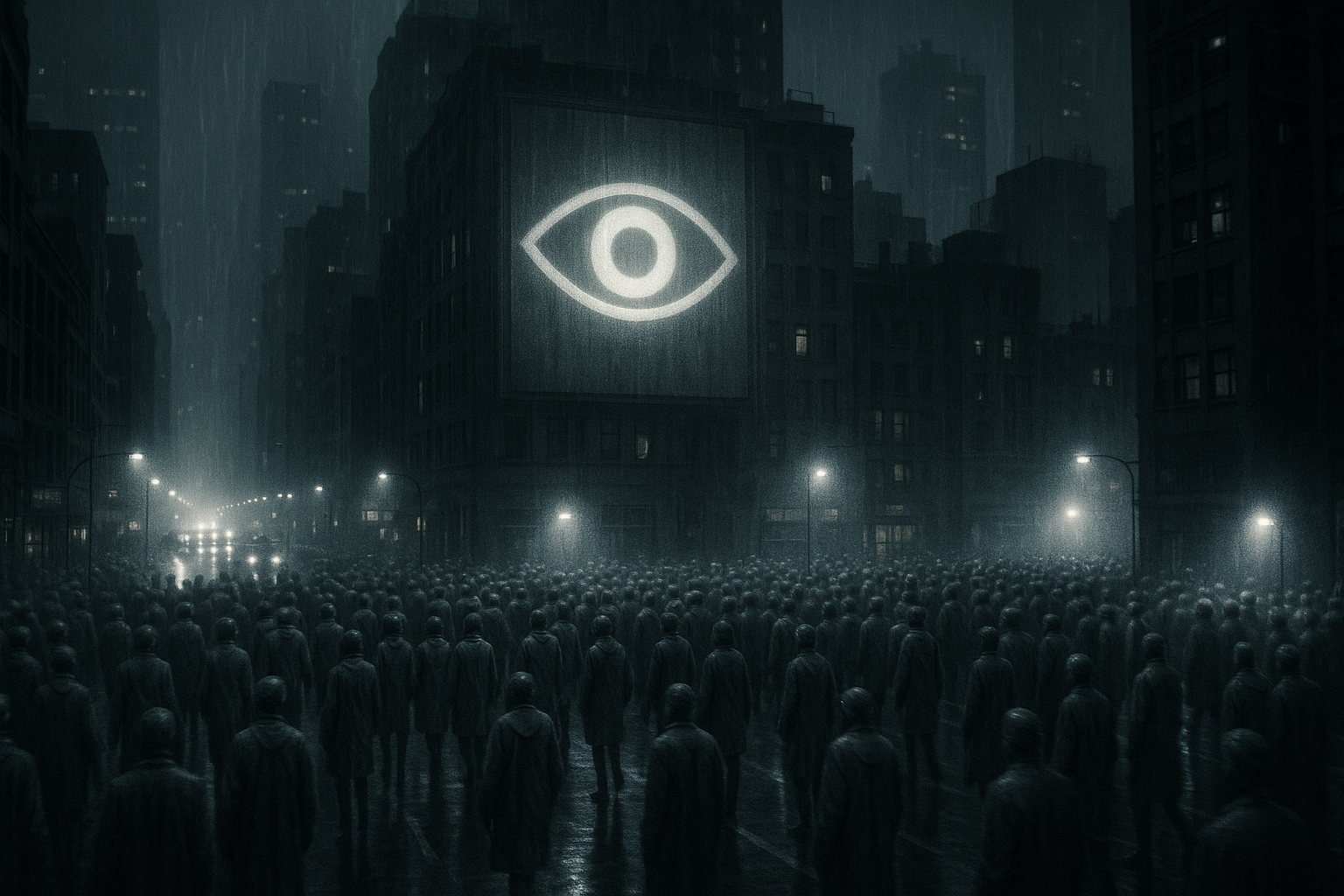A Visionary Dystopia
Discover George Orwell’s “1984”, a visionary dystopian novel that explores the dangers of totalitarianism and the value of individual freedom. A must-read for anyone seeking to understand the challenges of modern society.
Introduction
George Orwell’s dystopian masterpiece “1984”, published in 1949, plunges the reader into the darkness of a totalitarian future where mass surveillance and thought manipulation have become the norm. Through the eyes of Winston Smith, an employee of the Ministry of Truth, Orwell explores the terrifying consequences of an authoritarian regime that seeks to control not only the actions but also the minds of its citizens.
Summary and structure
Winston Smith, living in the omnipotent state of Oceania, finds himself trapped in a society where the Party, led by Big Brother, exercises absolute control. Life under the incessant gaze of the Party is a constant struggle for Winston, who seeks ways to resist this oppression. The novel’s structure, divided into three parts, guides the reader through Winston’s awakening, his intimate rebellion, and the inevitable consequences of his desire for freedom.
Themes and analysis
One of the central themes of “1984” is omnipresent surveillance, symbolized by Big Brother, who represents absolute government control over private life. Orwell explores in depth the destruction of individual freedom in a totalitarian state, where the truth is whatever the Party decides it to be. Novlanguage, the official language designed to limit the capacity for critical thought, illustrates the manipulation of language and ideas. “1984” also questions the nature of human resistance in the face of oppression, and the fragility of memory and truth in a world where they can be constantly rewritten.
Characters and development
Winston Smith represents the average individual, both heroic and tragic, in his quest for truth and freedom. His complex relationship with Julia, who shares his feelings of rebellion, and with O’Brien, a Party member who becomes a central pivot in his destiny, depicts the various facets of resistance and betrayal. Winston’s development, from his initial loneliness to his rebellion and eventual submission, illustrates the overwhelming power of the totalitarian regime over the human spirit.
Impact and reception
On its release, “1984” was recognized as a powerful warning against totalitarianism. Over time, its influence extended far beyond political criticism to become a cultural reference on surveillance, freedom of expression and truth. In today’s context of digital surveillance and post-truth, “1984” remains alarmingly relevant, calling for constant vigilance against attacks on individual freedom.
Why read this book?
“1984” is essential not only for its visionary analysis of the dangers of totalitarianism, but also for its exploration of the human condition in the face of oppression. It challenges the reader on the importance of truth, freedom, and the power of resistance, even in the most desperate circumstances. Recommended to anyone interested in politics, philosophy and dystopian literature, “1984” is essential reading for understanding the issues of our time.
Conclusion
George Orwell’s “1984” remains a pillar of dystopian literature, a timeless work that continues to resonate in a world where questions of surveillance, freedom and truth are more topical than ever. Its ability to awaken awareness and inspire reflection makes it a must-have for any library.
Latest Reviews & Analyses
Stay Updated with Our Latest Reviews
Join our community to receive exclusive insights and updates on groundbreaking literary works.
Find Your Next Literary Adventure
What Our Readers Are Saying

Maria Chen
“An enlightening journey through the pages of literary brilliance. A must-visit for any book lover!”






